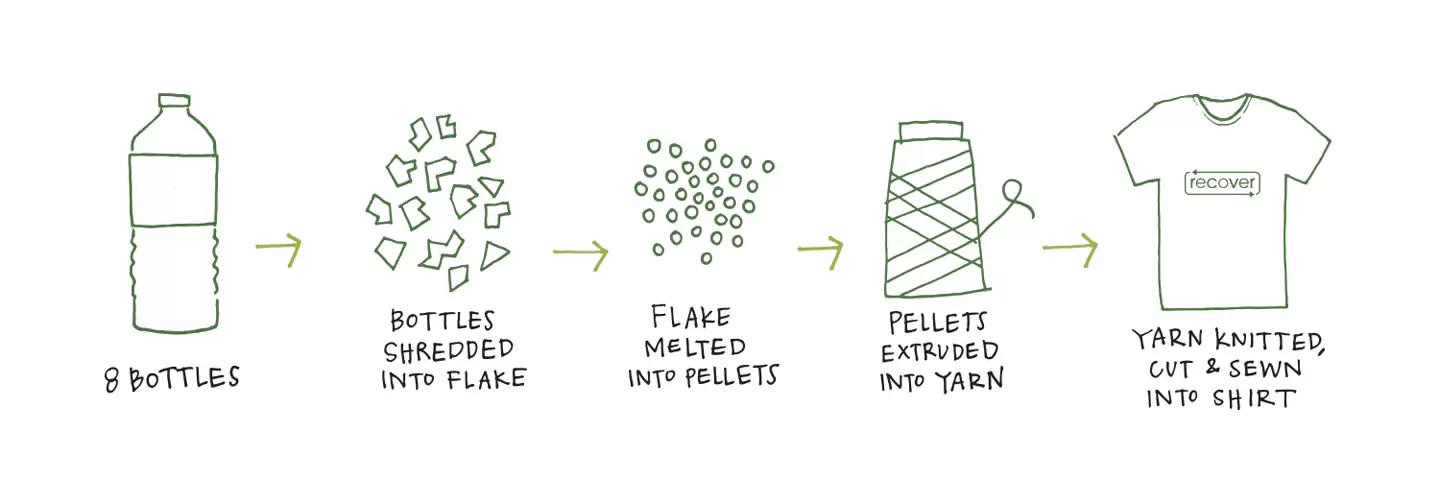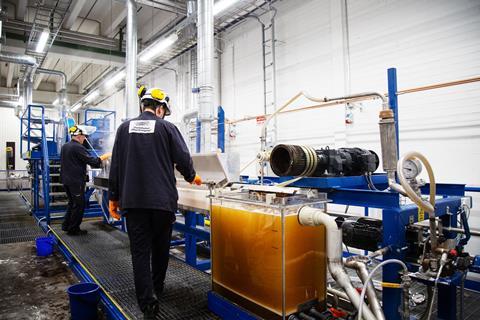|
Recycled polyester is having a moment in apparel. Textile manufacturers are using recycled polyester to create fabrics that they can tout as sustainable. And while it is great to be able to recycle a material into something else, there are a few hurdles with recycled polyester that hopefully industry will be able to overcome in the future. How sustainable is using recycled polyester? First off, it’s important to understand where recycled polyester even comes from. Water bottles are one of the easiest sources for recycled polyester. They are usually colorless, and are foodgrade, making their quality quite high. These water bottles are cleaned and washed multiple times, baled, shredded, and melted down into pellets that are then fed to spinning machines that re-melt them and extrude them as polyester filaments that get woven into your clothes. But therein lies the problem. Many countries already have water bottles that feed into robust recycling programs. These water bottles usually are turned into new water bottles, at least once and perhaps even 2-3 times.
If a water bottle is turned into a textile, the unspoken truth is that it is usually blended with another type of fiber (cotton, etc) to strengthen the material, and then is impossible to recycle again once the textile is used. Textile to textile recycling is incredibly hard to do because of blends and contamination of materials. In fact, it is estimated that only 1% of textile wastes, mainly white-colored wastes, are recycled and decolorization of these fabrics remain an issue for textile recyclers. So while a water bottle can be recycled upto 2-3 times, recycled polyester textiles will likely never be recycled again. In the end, no matter whether it’s used in bottles or textiles, polyester will have to go into the landfill unless chemical recycling occurs (which is still in early development, expensive, and sometimes politically charged). If it becomes a bottle, it’ll go in a little later than if it’s a textile. Perhaps the real solution is reducing the amount of water bottles etc that we use in the first place.
0 Comments
Leave a Reply. |
Archives
April 2024
Categories |


 RSS Feed
RSS Feed